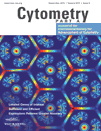|
Purpose:
|
With the underlying technology rapidly increasing in complexity, Flow Cytometry (FCM) data analysis is becoming more crucial for biological experiments. This workshop aims to provide participants some familiarity with the open source software environment R as an analysis tool for FCM data as they explore the fundamental concepts of taking their data to diagnosis and discovery. Participants will be able to open their FCS �files within R, explore their data using various visualizations, perform simple automated pre-processing tasks, quickly generate quality assurance reports to identify potential technical issues with the data, and automate simple gating strategies. As well, some basic clustering techniques will be explained and demonstrated, and new advanced analysis options presented (e.g., flowType, flowDensity, flowMeans, RchyOptimyx, flowClust3.0, SPADE, flowFP/flowBin, SamSPECTRAL). Workshop participants will come away with a better understanding of bioinformatics approaches to FCM analysis, be able to write their own analysis scripts in R to explore their FCM data, as well automate a gating strategy and record statistics of interest (e.g., proportions of cells in speci�fic populations of interest). |

